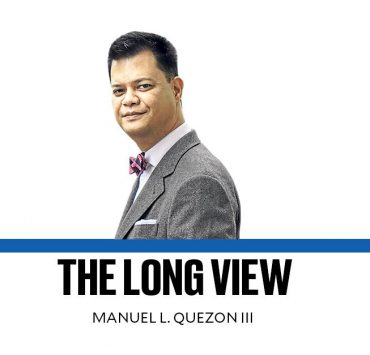Philippine gastronomy is world class

Among my passions is traveling, and along with that is a passion for food as well. Food for me is much more than just having a great meal, it is an experience. As Dutch scientist and writer Louise Fresco who is known for her work on globally sustainable food production, puts it, “Food, in the end, in our own tradition, is something holy. It’s not about nutrients and calories. It’s about sharing. It’s about honesty. It’s identity.”
While I seek and enjoy a wide variety of cuisines, I am also proud of our own Filipino food and cuisine. I have lived abroad for around 15 of the last 22 years, and during that time overseas I have traveled quite a lot both for business and leisure. During that time, I had the privilege of experiencing a wide range of cuisines in a variety of settings, from home cooked meals with friends, a night out, and formal receptions, and with that, I can say with confidence and pride that Philippine cuisine stands right up there alongside the very best. From my experience, Philippine gastronomy is definitely world class.
It is therefore quite heartening to read about the success of the recent International Manila Food Festival held at the Newport World Resorts which over the course of four days featured trendsetting chefs who are redefining our native cuisine abroad. The IMFF showcased Filipino cuisine’s creative potential with bold innovation and cultural pride. It culminated in a grand tasting event featuring world-renowned Filipino chefs, blending heritage and ingenuity to elevate traditional flavors in modern presentations.
But it wasn’t just the visiting chefs that graced the festival, present as well were our very own local top and highly respected chefs who worked hand in hand with their visiting counterparts. One of the highlights of the IMFF was the World Filipino Food Congress that served as a fertile ground for ideas that affirmed the importance of preserving traditional food and its time-honored methods of preparation, while embracing the need for innovation. Discussions touched on heirloom recipes, sustainability, education, and concrete calls to action.
Personally and based on my experience, I strongly feel that the Philippines is rapidly carving out a place on the global culinary stage. The IMFF is just further proof that this is the case and the opportunity for Philippine gastronomy to further shine and be recognized on a global scale is right there waiting to be taken advantage of. Nicole Ponseca, cofounder of Motherland Productions, which produced the IMFF with Newport World Resorts and generous sponsors like the Philippine Airlines, stated that she is getting tired of people saying that Filipino food is going to be the next big thing because for her, Filipino food is not what’s next, Filipino food is now. I agree with her.
Banking on this global recognition of Philippine gastronomy will help invigorate the local food industry and amplify tourism. For local producers, chefs, and restaurateurs, heightened international interest means increased demand for authentic regional ingredients and culinary expertise. This, in turn, sustains traditional farming communities and supports supply chains across provinces. For tourism, food is a compelling entry point for visitors to experience culture, history, and regional identity. By promoting heirloom ingredients and dishes, the Philippines offers more than just a meal—it provides immersive narratives and unique experiences. Visitors are drawn not only to famous dishes, but also to the stories behind them.
It is therefore timely that the Department of Tourism has released its Food & Gastronomy Tourism Strategic Framework and Roadmap 2024–2029. Launched in May 2025, the road map establishes food and gastronomy as a central pillar of the National Tourism Development Plan—a first in the nation’s history. By institutionalizing gastronomy tourism, the road map aligns with the momentum generated by chefs and festivals such as the IMFF, enabling a whole-of-nation approach that elevates Filipino cuisine on a massive, and hopefully, sustainable scale that would boost tourism and economic development.
With the global traction Filipino gastronomy is gaining, the creative work of chefs, and the DOT’s strategic road map forming a cohesive vision, Filipino cuisine is not just trending—it’s here. By celebrating its culinary heritage and crafting structured, immersive experiences, the Philippines stands poised to become a world-class food tourism destination where every dish tells a story and every tour feeds the soul.
If further proof is needed concerning this matter, the famed Michelin Guide already has the Philippines in its sights. I can’t wait and I’m quite excited about its debut in 2026. Among my foodie friends, the question of the first Michelin rated restaurant in the Philippines is no longer about “if” or “when,” but rather, “which one will it be?”
—————-
Moira G. Gallaga served three Philippine presidents as presidential protocol officer and was posted as a diplomat at the Philippine Consulate General in Los Angeles and the Philippine Embassy in Washington.

















Trump’s search for a Nobel Peace Prize